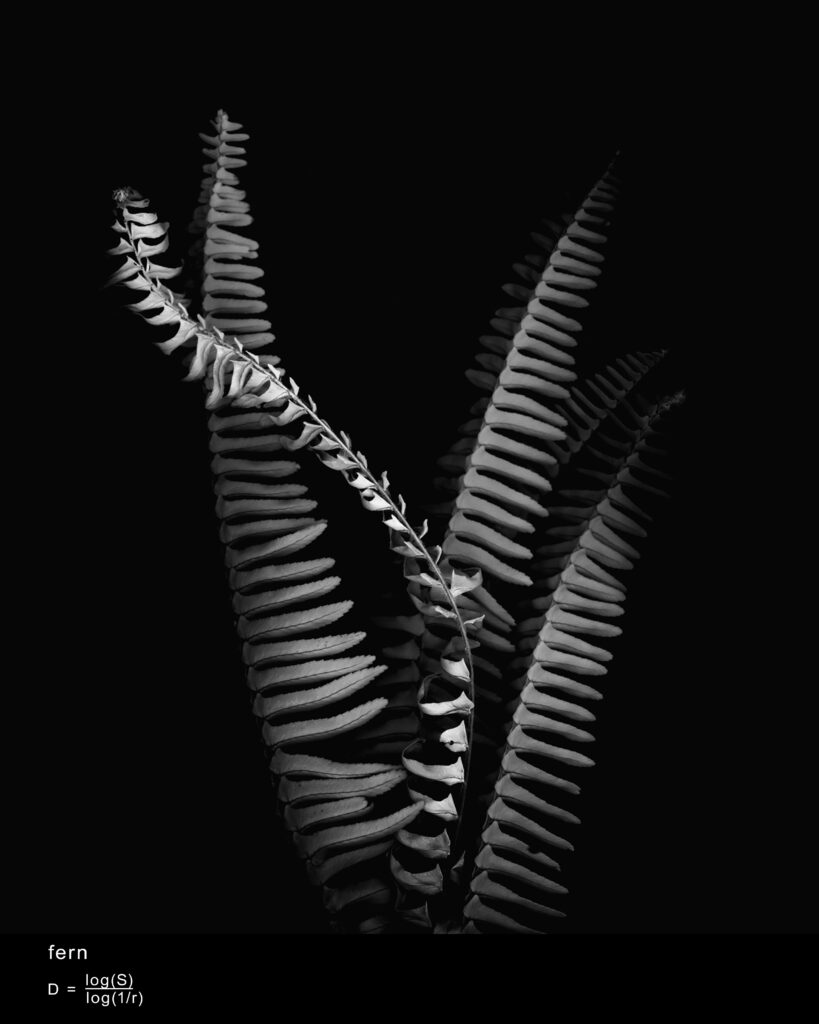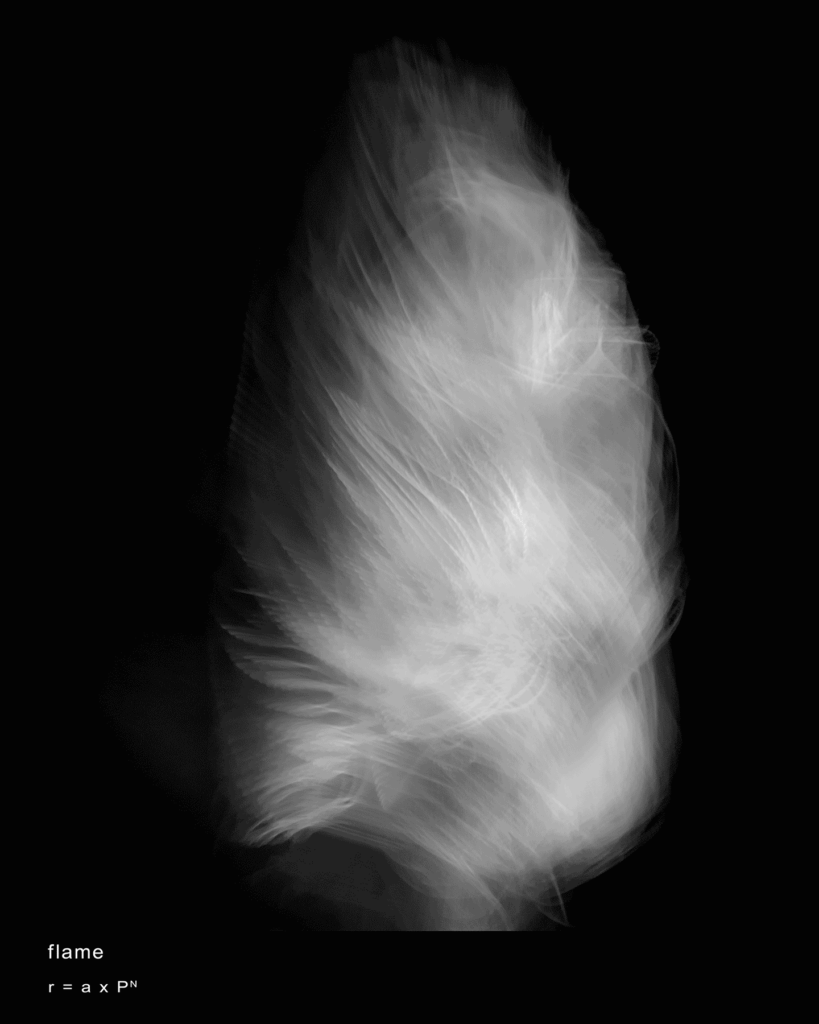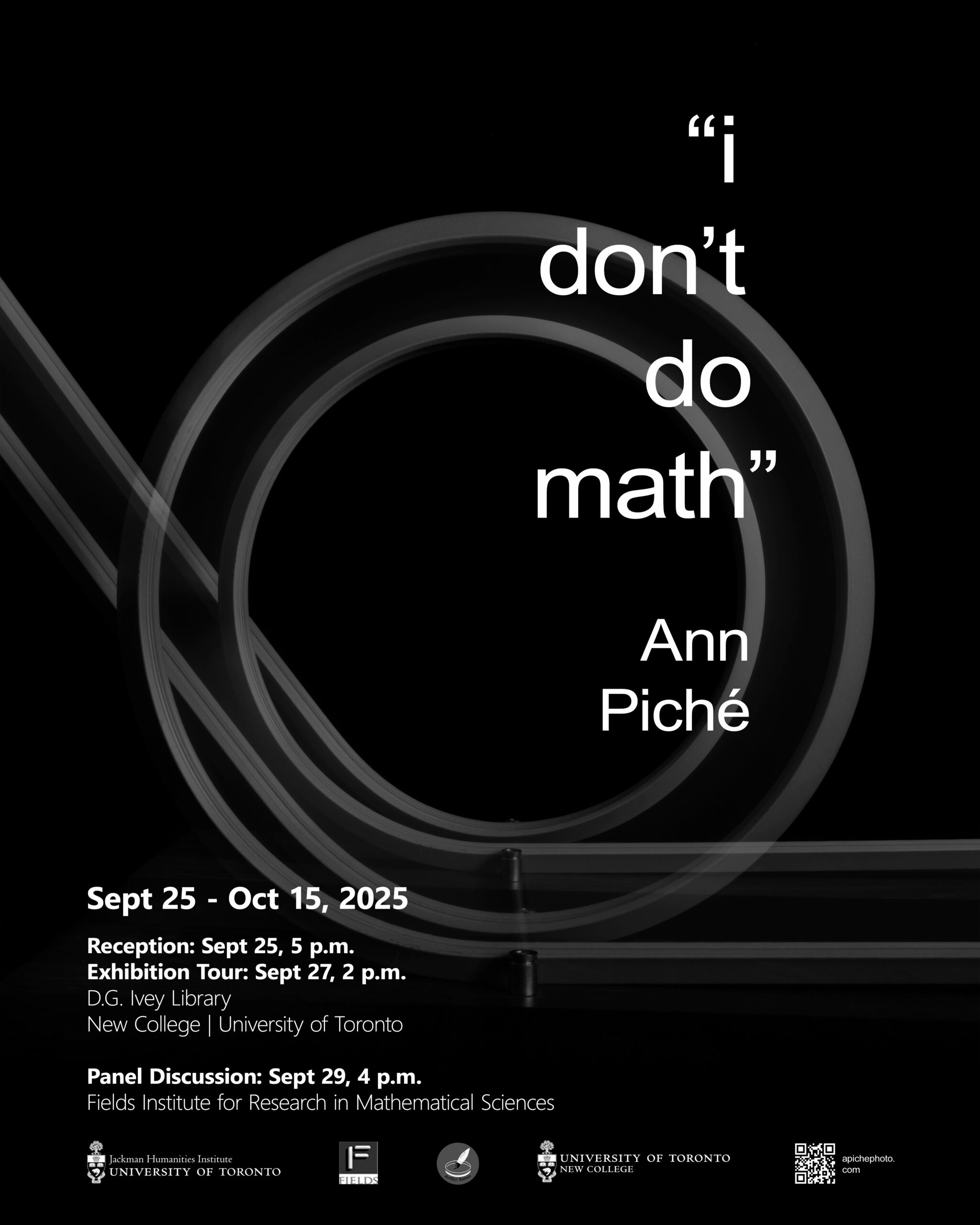September 25 – October 15
D.G. Ivey Library
20 Willcocks Street
New College
University of Toronto
Opening: Thursday September 25, 5:00 pm
Tour: Saturday September 27, 2:00 pm (meet us at the Fields Institute, Atrium 2nd floor)
—-
Panel Discussion: Monday, September 29, 4:00 pm
Ann Piché (independent artist)
Daniel Ansari (Department of Psychology and Education, Western University)
Darja Barr (Department of Mathematics, University of Winnipeg)
John Mighton (JumpMath)
room 230, the Fields Institute for Research in Mathematical Sciences
222 College Street, Toronto
—-
Stay tuned for the Final Panel Discussion on October 16, 10:00 am with
Andrew Fiss (Professional & Technical Communication, Michigan Technological University)
Jacqueline. D. Wernimont (Film and Media Studies, Dartmouth College)
Ellen Abrams (IHPST, UofT)
Michael Barany (University of Edinburgh)
Ann Piché

| ABOUT “I don’t do math” is a photographic series referencing dyscalculia, a learning difference affecting a person’s ability to understand and manipulate number-based information. This initiative seeks to raise awareness about the challenges posed by dyscalculia with educators, fellow mathematicians, and parents, and to normalize its existence, leading to early detection and augmented support. In addition, it seeks to reflect on and question broader issues and assumptions about the role and significance of Mathematics and Math education in today’s changing socio-cultural and economic contexts. The exhibition will contain pedagogical information and activities for visitors and students. The artist will also address the extensive research that led to the exhibition. The exhibition will feature two panel discussions following the opening and to conclude the exhibition. Photographer Ann Piché is using her artistic practice both to document the struggles experienced by people affected by dyscalculia, and to educate math educators, students, and parents about its effects and potential support strategies.The series consists of 15 photographs and 5 text-based panels, including work produced during fieldwork visits in Prof. Amenda Chow and Prof. Sarah Mayes-Tang’s Calculus and Symmetry classes; Prof. Pam Sargent’s business calculus class (all three professors are from the dept. of Math.); Prof. Ada Chan’s pre-calculus class (dept. of Math., York University); and Dr.Pamela Brittain’s K-12 and curriculum education program (Fields Institute). |

| Extended description “I don’t do math” is a photographic series referencing dyscalculia, a learning difference affecting a person’s ability to understand and manipulate number-based information. While dyslexia (difficulty with language) is a well-known learning condition, which thanks to years of advocacy is now detected early in life, dyscalculia still remains unknown. An average of 3–7% of all children, adolescents, and adults suffer from dyscalculia (Haberstroh & Schulte-Körne 2019). However, current numbers might be underestimated, as only a fraction of school children struggling with math skills are screened for dyscalculia (Sparks 2023). Although it is often dismissed as related to low education or as simply the feature of one’s personality, dyscalculia can have a negative impact throughout a person’s life. Math anxiety, a feeling of apprehension or fear that interferes with math performance, can be confused with dyscalculia. The two are not the same, although dyscalculia can cause math anxiety. This exhibition will be accompanied by an artist talk and a panel discussion. With these initiatives, we seek to raise awareness about the challenges posed by dyscalculia with educators, fellow mathematicians, and parents, and to normalize its existence, leading to early detection and augmented support. In addition, we hope to further reflect on and question broader issues and assumptions about the role and significance of Mathematics and Math education in today’s changing socio-cultural and economic contexts. Photographer Ann Piché is using her artistic practice both to document the struggles experienced by people affected by dyscalculia, and to educate math educators, students, and parents about its effects and potential support strategies. In this proposed exhibition, she will present abstract images accompanied by their mathematical formulae. The images visually translate unfamiliar mathematical equations into something familiar – the photograph. Images and formulas aim to transmit the frustration dyscalculics must feel living in a number-centric world. The accompanying text-based panels guide the viewer through the assumptions and the difficulties that people affected by dyscalculia must face. The proposed series will consist of 15 large photographs and 5 text-based panels, including work produced during fieldwork visits in Prof. Amenda Chow and Prof. Sarah Mayes Tang’s Calculus and Symmetry classes; Prof. Pam Sargent’s business calculus class (all three professors are from the dept. of Math.); Prof. Ada Chan’s pre-calculus class (dept. of Math., York University); and Pamela Brittain’s K-12 and curriculum education program (Fields). We envision two complementary events to accompany the exhibition: An artist talk and dialogue with math educators. Ideally, some participants to the research conducted in the Winter/Spring 2025 will be in attendance and acting as respondents. An interdisciplinary panel discussion with scientists, artists, and philosophers to contextualize dyscalculia and to address changing notions and assumptions concerning Math and Math education in history and society. This exhibition and panels are the results of collaborations across New College, the Fields Institute, the Departments of Mathematics at the University of Toronto and York University and OISE, and have secured support from the Jackman Humanities Institute, the Fields Institute, and New College. Both events will be open to the public. Active outreach will aim to draw participation from high school and elementary school teachers and parents. References Haberstroh, S., & Schulte-Körne, G. (2019). The Diagnosis and Treatment of Dyscalculia. Deutsches Ärzteblatt International, 116(7), 107–114. Sparks, S. D. (2023, May 1). Dyscalculia and Dyslexia: Reading Disabilities Offer Insights for Math Support. Education Week. |
Download a selected bibliography here

Comments are closed